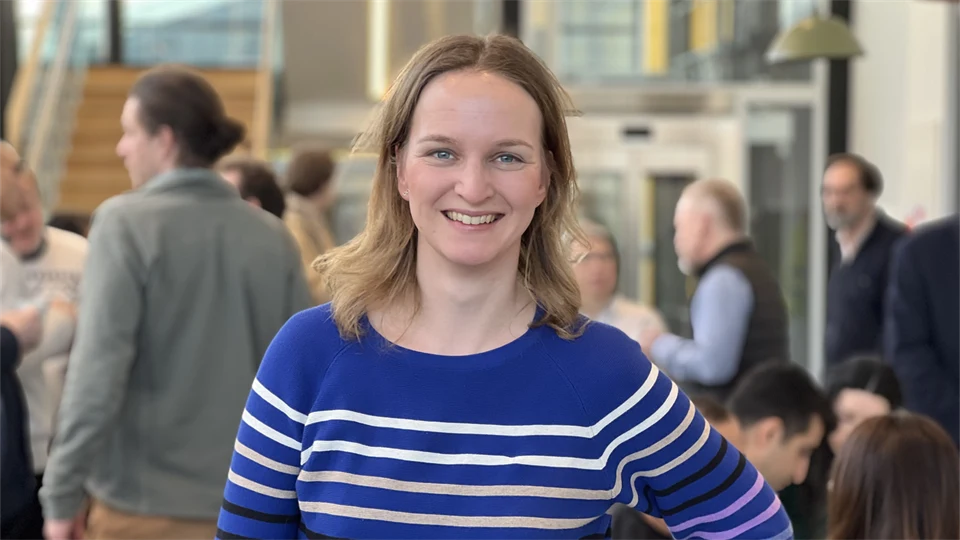Variety and great career opportunities with a degree in engineering physics
A degree in Engineering Physics opens doors to future industries such as energy systems, materials development, and medical technology. Britta Andres earned her master’s degree at Mid Sweden University and now works as a research and development engineer at 2Dfab.
You currently work as a research and development engineer at 2Dfab – what has your journey been like?
I have always been fascinated by new materials and studied a specialization in nanotechnology—a combination of engineering physics and chemical engineering—when I lived in Germany. When I moved to Sweden, I started as a Master by Research student in chemical engineering at Mid Sweden University. Later, I pursued a PhD in graphene, which meant I was then affiliated with engineering physics instead. In this way, I have moved between these two fields. My supervisor at Mid Sweden University later founded the company 2Dfab, and after spending a few years as a researcher and lecturer at the university, I joined the company as a research and development engineer.
What does your work as a research engineer involve?
It’s a highly varied role. Part of my job involves developing new products and processes to find sustainable solutions. Another part focuses on improving existing materials and processes to make them more energy efficient. Some periods, I spend a lot of time in the lab analyzing and developing materials, which we then test in production to see if they work on a larger scale. At other times, I dedicate myself to reading up on new research to stay updated in the field. I truly appreciate the variety and constant challenges—it’s exciting to test and develop new ideas!
Engineering physics expertise is needed in many areas related to society’s green transition. What does that mean to you?
I have always been interested in working with energy and energy systems, so this field is very important to me. A concrete example from our work is how we have been developing adhesives. We discovered that by adding a very small amount of graphene to corrugated cardboard, we could reduce the energy consumption during production by as much as 25%.
How has your education in engineering physics prepared you for your current job?
It has provided me with many technical skills and taught me how to work methodically to investigate and develop new solutions. You learn how to prepare experiments, conduct them, and interpret the results. We also have a great team, so I can always turn to colleagues with complementary expertise in areas such as chemistry. I really enjoy teamwork!
What would you say to someone considering studying engineering physics?
It’s great to have an interest in technology and curiosity about new materials, but the program also provides broad expertise that is in demand across many different industries. Engineering physics might sound specialized, but in reality, there are an incredible number of opportunities after graduation.
What does the future look like for someone with a master’s degree in engineering physics? What career opportunities are available?
As an engineer or master’s graduate, you develop an analytical and methodical approach to work, which is highly sought after in the job market. The program provides a broad foundation that allows you to choose from many different career paths. You can work on developing new materials, improving energy storage and battery technology, or in medical technology fields. It’s a broad field with excellent future prospects, both in Sweden and internationally.
